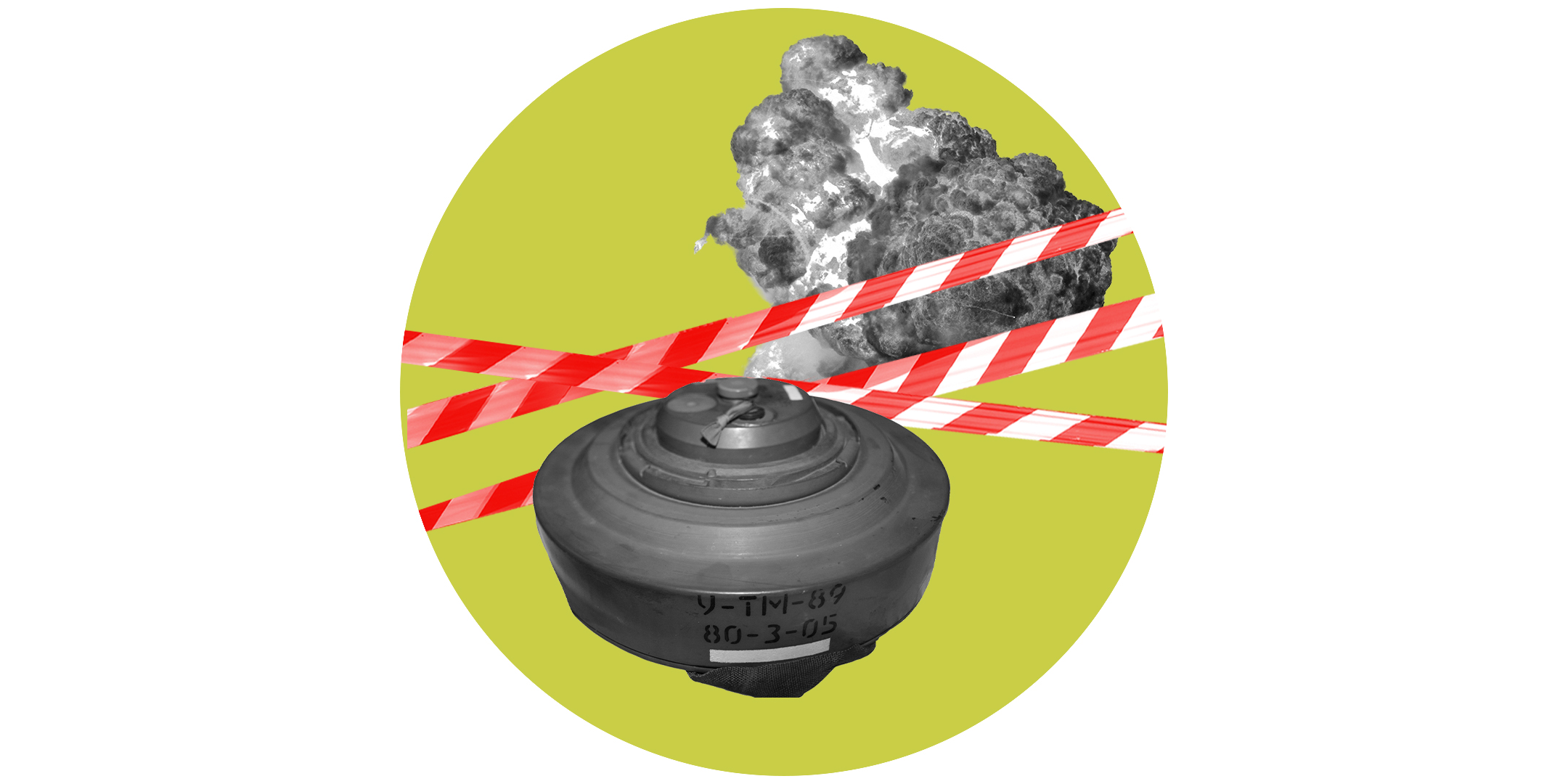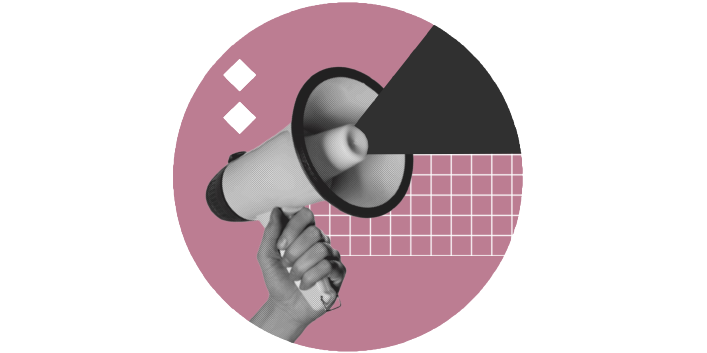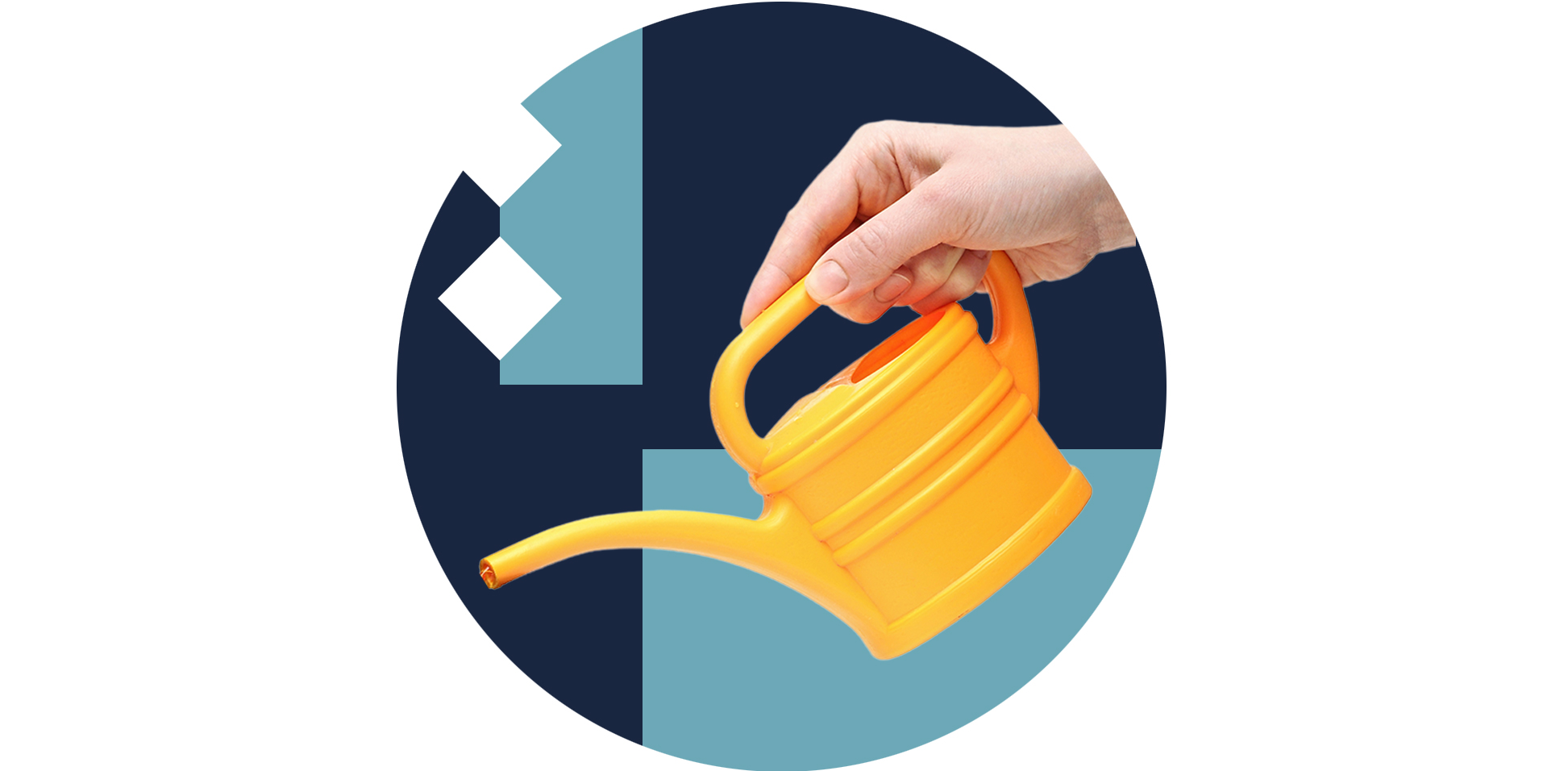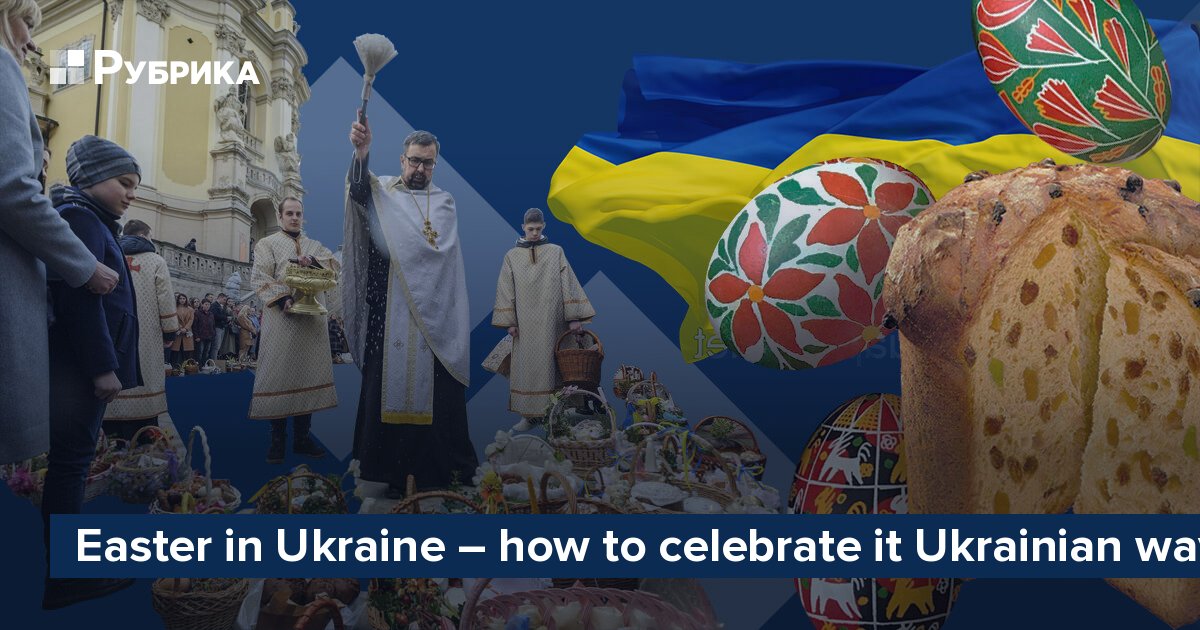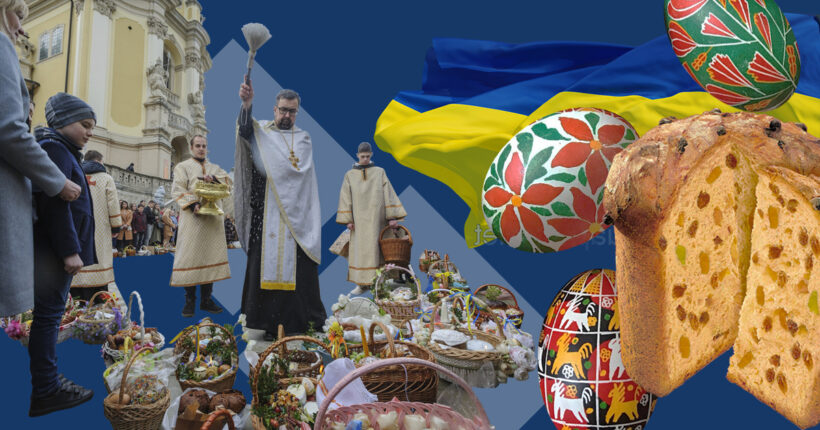
What's the meaning of Ukrainian Easter?
The word for 'Easter' in Ukrainian stands for Velykden', which means 'Great Day'. It is one of the biggest holidays in the country. The preparation for Easter begins two months in advance. Some people fast with strict devotion. Those who celebrate await Easter as festive mood blooms throughout the country, and families come together to celebrate with traditional foods.
Most churches in Ukraine follow the Julian calendar. It differs from the Gregorian calendar, which determines the year in most Western churches by 13 days. Easter, however, usually falls on the first full moon after the equinox – when day and night last the same amount of time. Due to the different calendars, the holidays often fall on different weekends. In 2022 orthodox Christians in Ukraine celebrate Easter on April,16, while the Catholics have the holiday on April, 9.
Ukrainian Easter food

Easter in Ukraine is a time full of customs and traditions. Most refer to pre-Christian beliefs or the resurrection of Jesus. Unlike the West, Ukraine doesn't host egg hunts nor believe in Easter bunnies. Well, Ukrainians don't need them anyway because they have authentic and tasty traditions.
Paska – Ukrainian Easter bread
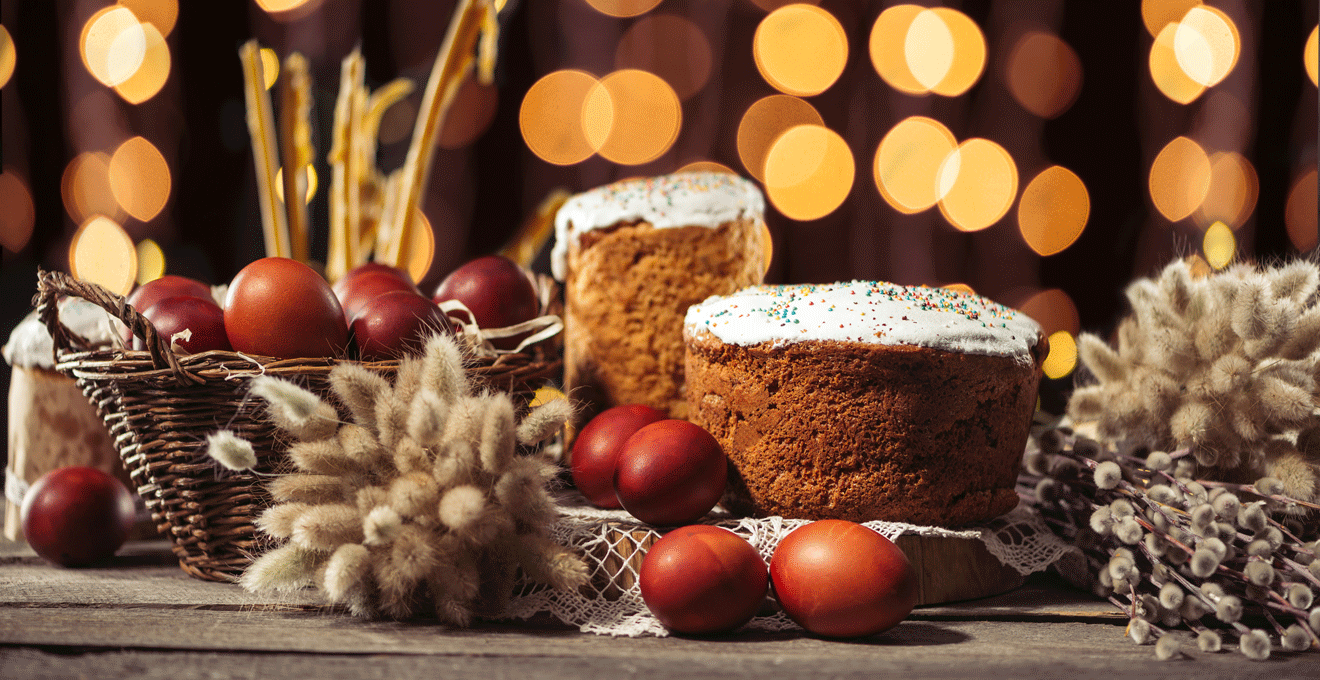
One of the most important parts of Easter in Ukraine is paska, a specific kind of bread or cake. It consists of an airy dough that should rise during the baking. The bread is sweet and decorated with sprinkles. The traditional paska has raisins and nuts inside, but some Ukrainians adapt the bread to their taste.
The dough usually takes quite a long time to make. According to tradition, the dough must not be disturbed during baking, so there is a belief to keep silence around the oven. The bread is taken out with a prayer and later decorated.
The Easter holiday is also referred to by many as Paskha. The term goes back to the Jewish festival Passover, which commemorates the exodus of the Jews from Egypt.
Pysanky and Krashanky – Ukrainian Easter eggs
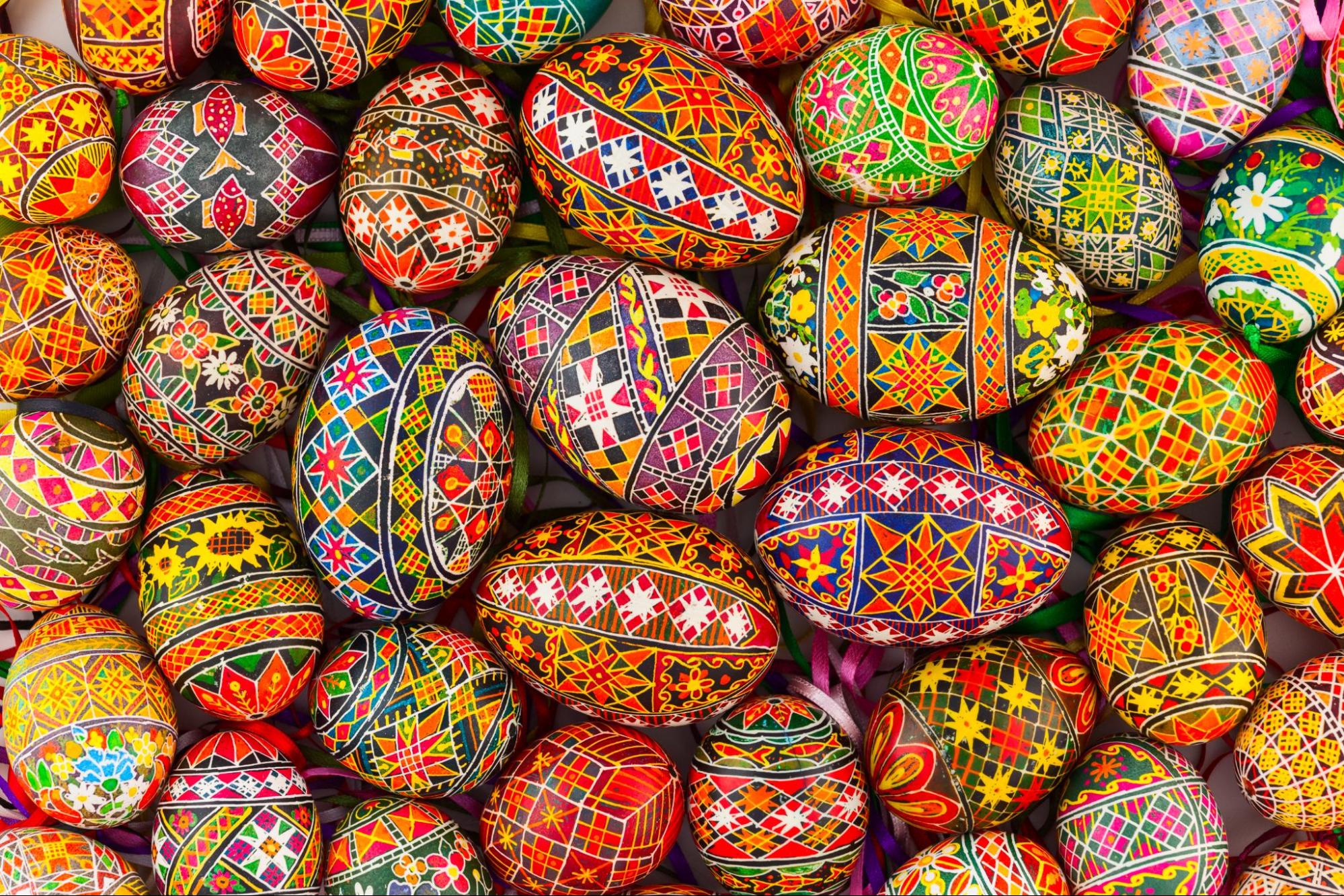
Easter eggs tradition comes from the West, but they belong to the national culture in Ukraine. During the pagan spring festivals, eggs were a sign of fertility and a wish for a good harvest. The Church then transformed the meaning into a symbol of Jesus' resurrection. In Ukraine, these two attributions combine.
The most famous form of Easter eggs is pysanky. They are decorated with particular ornamentation and folk patterns that have special meanings. The roots of this tradition primarily originate from Western Ukraine. Pysanky are painted with colored wax. This is an ancient tradition, though masters of decorating still exist and perform true art. Today, pysanky come in all colors and patterns. For example, in Kolomyia, a western city in Ukraine, there is an Easter egg museum in the shape of an egg, where visitors can see several thousand different patterns. The patterns represent different symbols and can usually be assigned geographically based on the style.
There is also another variety of Easter eggs. Krashanky are what is known, for example, in Germany as colorful Easter eggs. They are colored and usually not painted. They are also hard-boiled, while pysanky are emptied. Originally, krashanky were colored red to represent the blood of Jesus Christ he left for the sins of the people. Today, however, the eggs have a variety of colors.
Easter basket – not egg hunt
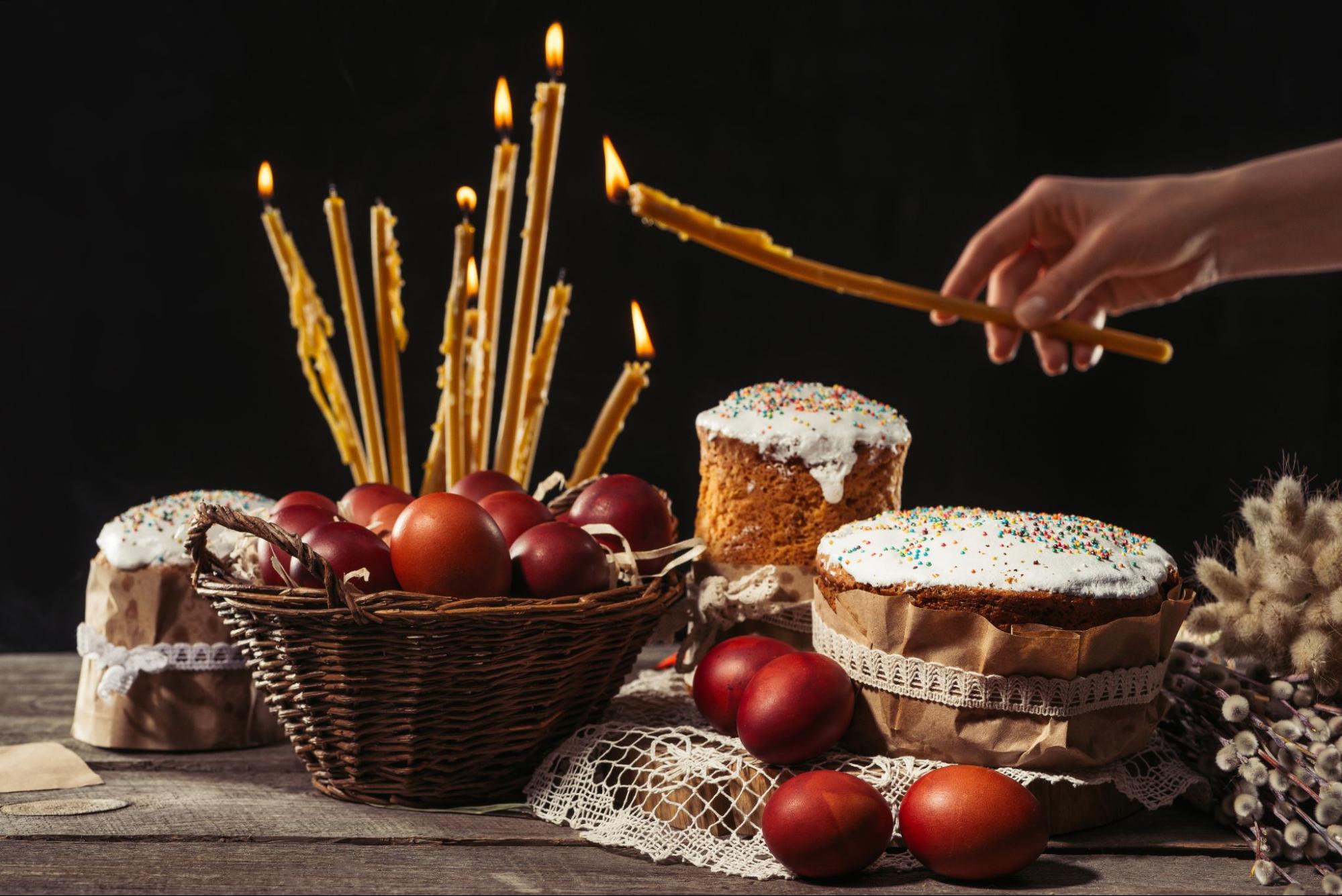
Easter basket is a traditional set of food that remained taboo during fasting. Ukrainians fill it with a plethora of food to later bless it in a local church. It contains pysanky, paska and sausages, ham and other meats. Ukrainians also put butter, lard, cheese, salt, pepper and horseradish. Before the blessing, a candle is lit in the basket. The baskets are usually covered with a cloth on which the most important Easter saying "Christ has risen!" (Khrystos voskres!) is written. After the blessing, the baskets are taken home, and then Ukrainians serve their tables with this food.
Local Easter traditions
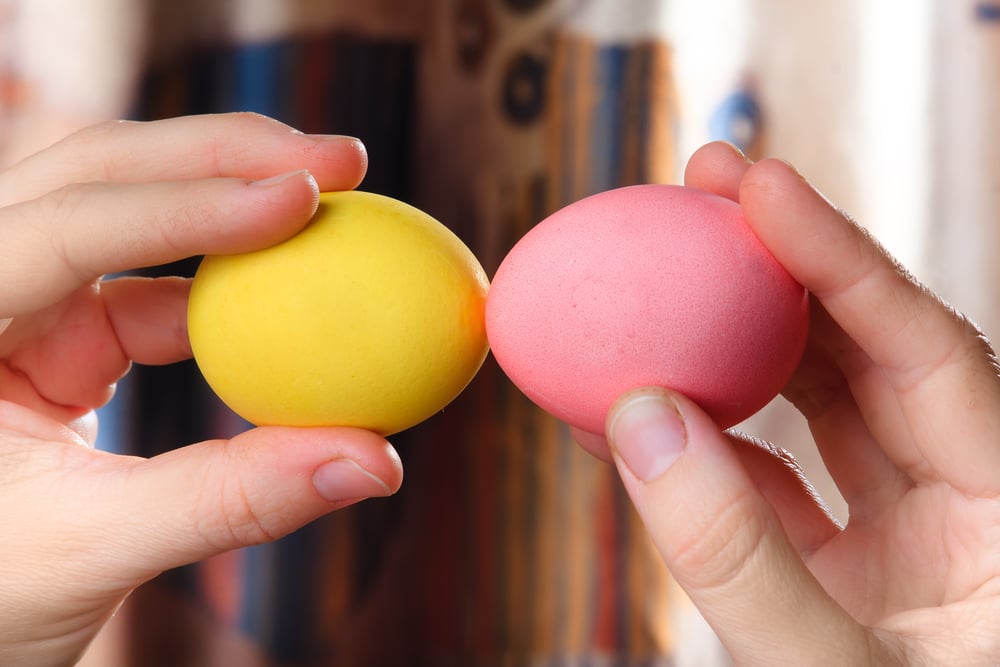
Ukrainian traditional egg tapping
Ukrainians have their way of celebrating Easter, but some traditions are commonly used to unite the nation. For instance, it is customary not to sleep the night before Easter, as Orthodox people go to the cathedral for service and bring a variety of foods with them. They take Easter cakes and eggs, meat and wine, which the priest blesses with holy water.
After service, it is time to start the festivities, fill the table and extend greetings like 'Christ is risen,' and 'Truly he has risen'. Despite all the culinary treats on the table, the meal should start with Easter cake; every piece is eaten and never wasted. Adults chat together, while kids play a traditional game called bytky or 'egg tapping'. The game is all about smashing a hard-boiled egg (with the shell still on) into someone else's without breaking one's own. The game's object is to be the last one standing with an unbroken egg.
Easter greetings
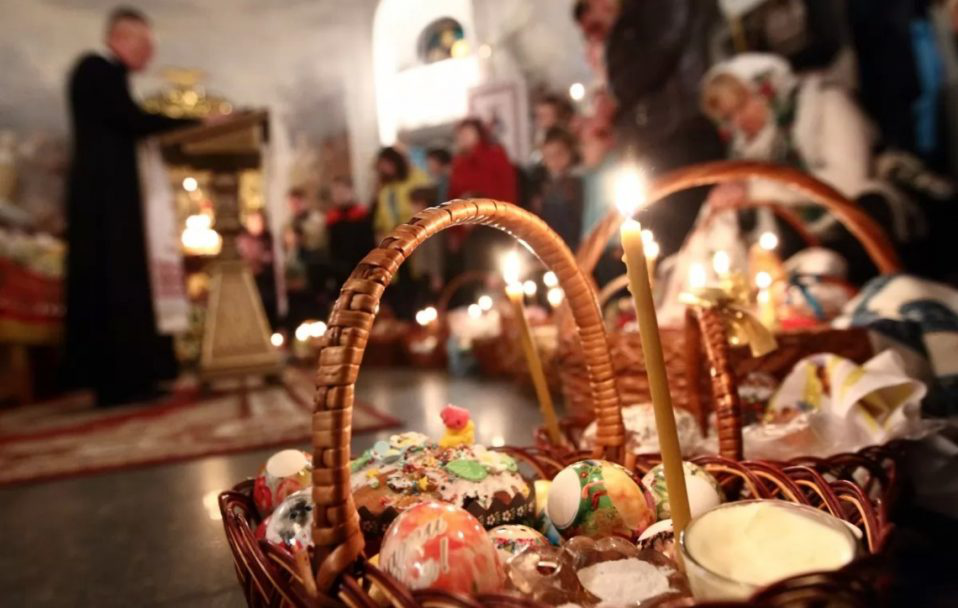
The Easter greetings are a particularly beautiful tradition. They replace the usual "Good day" and spread the festive mood throughout the country, reminding Ukrainians of Jesus' resurrection.
Христос воскрес! (Khrystos voskres!) – Christ has risen!
This greeting is said from the midnight Mass, so in any case, only from Sunday, not before. It recalls the resurrection of Jesus and even has a corresponding response.
Воістину воскрес! (Voyistynu voskres) – Truly he has risen!
This is the only correct response to the first saying. Ukrainians say them until three days after Easter. Sometimes it is said only on the holidays or even later. Other Easter greetings are used more in advance or by less religious people. These include Смачної паски! (Smachnoyi pasky) – Have a delicious Easter bread or simply З Великоднем! (Z Velykodnem) – Happy Easter.



